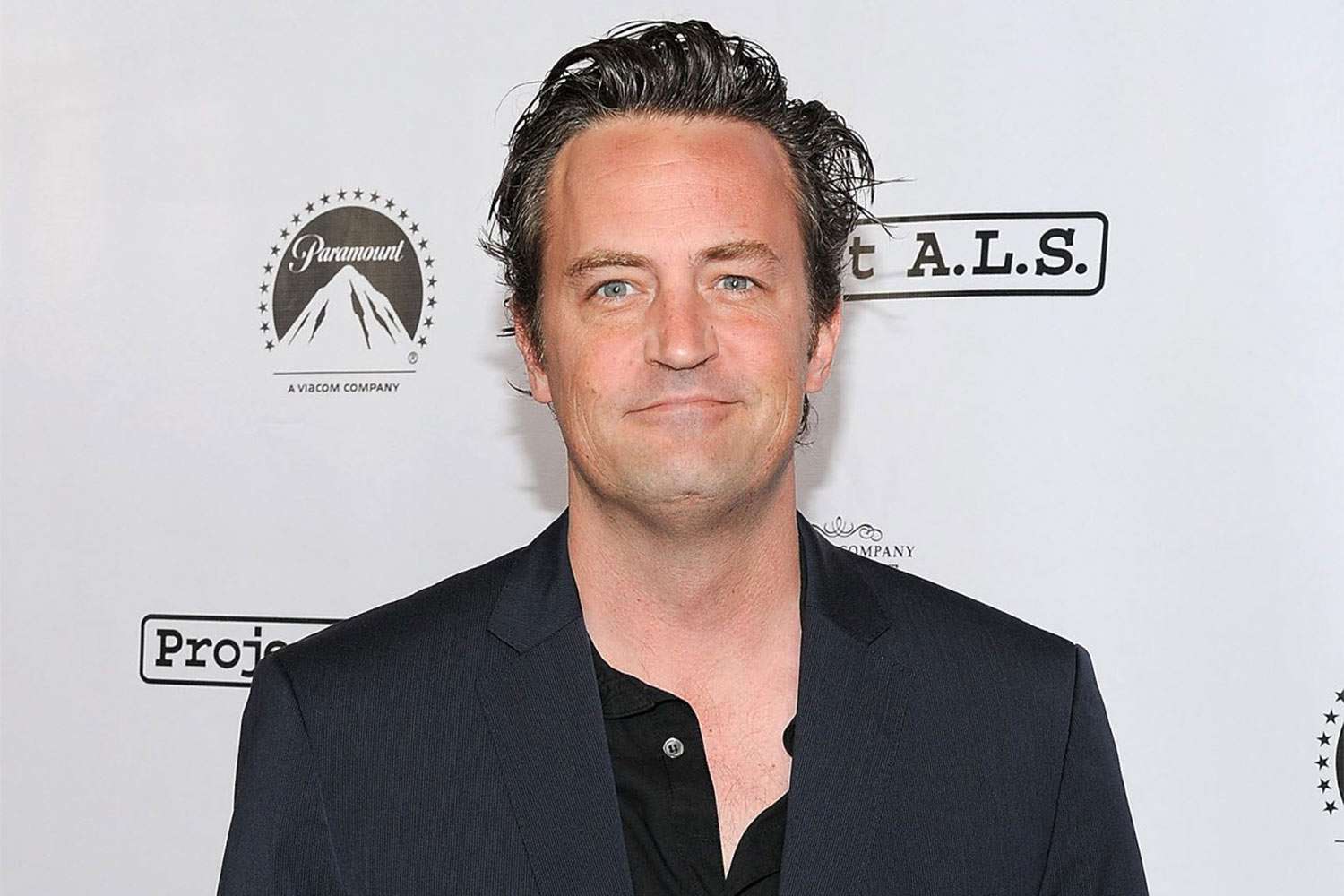Matthew Perry, beloved worldwide for his role as Chandler Bing in Friends, tragically passed away on October 28, 2023, at the age of 54. His sudden death at his Los Angeles home left fans devastated and raised troubling questions about how he obtained the lethal ketamine dose that ended his life.
Nearly two years later, the case has reached a major turning point. Federal prosecutors have confirmed that Jasveen Sangha, infamously known as the “Ketamine Queen”, has agreed to plead guilty. Sangha, a dual citizen of the U.S. and U.K., was accused of supplying Perry the fatal ketamine vials that led to his overdose.
Her plea makes her the fifth and final defendant to admit guilt in the high-profile case, closing a painful chapter for Perry’s fans and shining a harsh light on the shadowy world of celebrity drug trafficking.

Who Was the “Ketamine Queen”?
Jasveen Sangha, 42, was far from a stereotypical dealer. A well-educated woman, she graduated from Calabasas High in 2001, earned her Bachelor’s degree from the University of California, Irvine, in 2005, and later completed her MBA from Hult Business School in 2010. She even worked briefly at Merrill Lynch.
But behind this polished résumé, Sangha was running one of Los Angeles’ largest underground drug networks. Federal authorities described her residence as a “drug-selling emporium” after raiding her home in 2024 and discovering 80 vials of ketamine along with thousands of pills of methamphetamine, cocaine, and Xanax.
Her clientele reportedly included Hollywood actors, celebrities, and wealthy businessmen. Among them was Matthew Perry — a man publicly committed to sobriety, but privately struggling with ketamine misuse.

Jasveen Sangha’s Role in Matthew Perry’s Death
Investigators revealed that just four days before Perry’s death, Sangha sold him 25 vials of ketamine, delivered through her associate Erik Fleming, a friend of Perry who acted as a middleman.
Prosecutors also accused Sangha of selling nearly 50 vials of ketamine over two weeks, collecting $11,000 in cash, and coordinating closely with Perry’s assistant, Kenneth Iwamasa, who often injected the actor multiple times a day.
According to autopsy reports, Perry had “high levels of ketamine” in his system at the time of his death, leading to fatal complications. Although Perry had received ketamine infusion therapy in the past for mental health treatment, medical authorities confirmed that the ketamine in his system at the time was unrelated to legitimate therapy.

Why Did It Take So Long for Sangha to Plead Guilty?
Interestingly, Sangha did not plead guilty right away. Initially, she fought the charges, with her lawyer, Mark Geragos, insisting in early hearings:
“Just because it’s a tragedy doesn’t mean it’s criminal.”
For months, Sangha maintained a “not guilty” stance, hoping the prosecution wouldn’t be able to directly pin Perry’s overdose on her. However, as evidence mounted — including deleted messages between her and co-defendants — and as the other four defendants one by one accepted plea deals, the weight of the case grew undeniable.
By August 2025, Sangha finally agreed to plead guilty to three counts of ketamine distribution, including one resulting in death, and maintaining a drug-involved premises. In exchange, other charges were dropped. Still, she faces up to 65 years in prison, though her sentence could be reduced if she is seen as fully accepting responsibility.

Who Were the Other Four Defendants?
Jasveen Sangha was not alone. Four others played critical roles in the supply chain that led to Perry’s overdose:
1. Kenneth Iwamasa — Matthew Perry’s Personal Assistant
Iwamasa was deeply involved in Perry’s ketamine use, often administering six to eight injections per day in the days before the actor’s death. Trained by one of Perry’s doctors, he played a dangerous role in escalating Perry’s intake. He admitted guilt to conspiracy to distribute ketamine resulting in death.
2. Erik Fleming — The Middleman
A friend of Perry’s, Fleming acted as the link between Sangha and the actor. He delivered 50 vials of ketamine, of which 25 — worth $6,000 — were sold to Perry just four days before his death. Fleming pleaded guilty to one count of ketamine distribution.
3. Dr. Salvador Plasencia — The Provider
Plasencia, a doctor who initially provided Perry legal ketamine therapy for depression, crossed a line by supplying additional vials outside medical guidelines. He admitted to selling 20 vials just weeks before Perry’s death. Charged with four counts of distribution, he has also agreed to surrender his medical license.
4. Dr. Mark Chavez — The Source
Chavez supplied ketamine to Plasencia through fraudulent means, essentially fueling the chain of illegal distribution. He admitted guilt to conspiracy to distribute ketamine and awaits sentencing.
Together, the five defendants created a web of supply and administration that tragically fueled Perry’s fatal relapse.
Matthew Perry’s Final Days: 27 Ketamine Shots in 3 Days
Matthew Perry’s death was ruled an accidental ketamine overdose. The autopsy revealed abnormally high levels of the drug in his system — levels unrelated to his ongoing, legitimate ketamine infusion therapy.
According to the documentary Matthew Perry: A Hollywood Tragedy, Perry allegedly received 27 ketamine injections within just three days before his death. On the morning of October 28, 2023, despite already having taken two shots, he asked his assistant for another, reportedly saying, “Make it a big one.” Later that day, he was found unresponsive in his hot tub.
Perry’s tragic final days underscored the lethal consequences of excessive ketamine use, even when the drug begins as a medical treatment.
What Is Ketamine and Why Is It Dangerous?
Ketamine, originally developed as a medical anesthetic, is also used in controlled doses for:
-
Anesthesia in surgeries
-
Pain management
-
Mental health treatments (depression, PTSD, severe anxiety)
However, when abused recreationally or consumed at dangerously high levels, ketamine can be fatal. Risks include:
-
Respiratory failure due to suppressed breathing.
-
Cardiovascular complications such as dangerous blood pressure fluctuations.
-
Severe hallucinations and disorientation, increasing the risk of accidents.
-
Coma and death in cases of overdose.
In Perry’s case, the blurred line between medical use and abuse became fatal. Though he had been clean for 19 months and publicly confident in his sobriety, the powerful dissociative drug ultimately claimed his life. While ketamine therapy shows promise in mental health treatment, Perry’s death underscores the dangers of misuse and lack of medical supervision.
A recent documentary titled Matthew Perry: A Hollywood Tragedy has unveiled that actor Matthew Perry received 27 ketamine shots in the three days leading up to his death in October 2023. The film highlights Perry’s assistant, who administered three final dose. Medical… pic.twitter.com/UXJ7XMO3C4— The CSR Journal (@thecsrjournal) February 27, 2025
Closure for Fans, But Lessons for Hollywood
Matthew Perry’s death was not just a personal tragedy; it exposed the dark underbelly of celebrity drug culture and the exploitation of vulnerable individuals battling addiction. His death also exposed a shocking drug pipeline involving assistants, doctors, and dealers who blurred the lines between care and exploitation.
Now, with all five defendants — including the so-called Ketamine Queen — pleading guilty, the legal chapter is drawing to a close. Yet, for millions of fans, Perry’s death will remain a painful reminder of how substance misuse can cut short even the brightest lives. Meanwhile, Perry’s legacy endures — not only as Chandler Bing but as a man who fought tirelessly to overcome addiction, leaving behind both laughter and lessons.
With inputs from agencies
Image Source: Multiple agencies
© Copyright 2025. All Rights Reserved. Powered by Vygr Media.

























